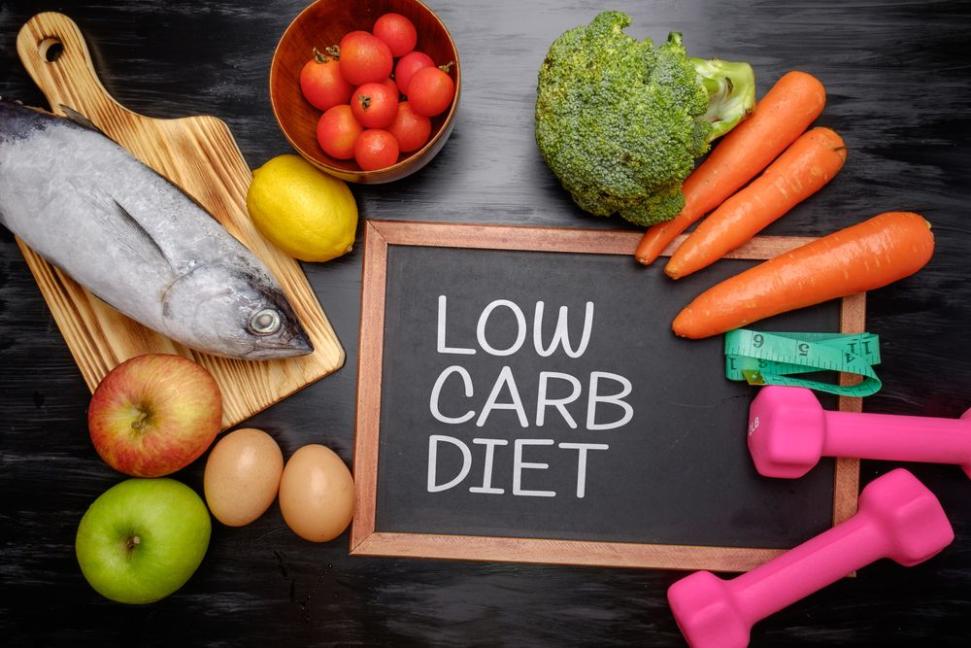How Can I Make Sure I'm Getting Enough Protein on a Low-Carb Diet?
A low-carb diet is one that restricts the intake of carbohydrates, such as those found in bread, pasta, rice, and sugary foods. It has gained popularity for its potential benefits in weight loss, blood sugar control, and improved metabolic health.

Protein is an essential macronutrient that plays a crucial role in various bodily functions, including muscle growth and repair, immune function, and hormone production. Consuming adequate protein is important for overall health and well-being, and it becomes even more crucial when following a low-carb diet.
This article aims to provide practical tips and guidance on how to ensure you're getting enough protein on a low-carb diet.
1. Understand Your Protein Needs:
- Protein requirements vary depending on several factors, including age, activity level, and health goals.
- As a general guideline, aim for 0.8-1 gram of protein per kilogram of body weight per day.
- For example, if you weigh 70 kilograms, you should aim to consume approximately 56-70 grams of protein daily.
- Consult with a healthcare professional or registered dietitian for personalized guidance on your specific protein needs.
2. Choose Protein-Rich Foods:
- There are a variety of protein sources available, including both animal-based and plant-based options.
- Animal-based protein sources include meat, poultry, fish, eggs, and dairy products.
- Plant-based protein sources include beans, lentils, tofu, nuts, and seeds.
- Here are some examples of high-protein foods and their approximate protein content per serving:
- 3 ounces cooked chicken breast: 27 grams
- 3 ounces cooked salmon: 22 grams
- 1 cup lentils: 18 grams
- 1/2 cup almonds: 16 grams
- 1 cup Greek yogurt: 17 grams
- 1 large egg: 6 grams
Incorporate these foods into your low-carb meals and snacks to ensure adequate protein intake.
3. Plan Your Meals And Snacks:
- Planning your meals and snacks in advance is key to meeting your protein goals on a low-carb diet.
- Create a weekly meal plan that includes a variety of protein sources.
- Here are some sample meal plan ideas:
- Breakfast: Scrambled eggs with vegetables and avocado
- Lunch: Grilled chicken salad with mixed greens and a low-carb dressing
- Dinner: Baked salmon with roasted vegetables and quinoa
- Snacks: Greek yogurt with berries, a handful of nuts, or a protein smoothie
4. Cook Protein-Rich Recipes:
- There are many delicious and easy-to-prepare protein-rich recipes available.
- Experiment with different recipes to find ones that suit your taste and dietary preferences.
- Here are some simple and delicious protein-rich recipes to try:
- Pan-seared salmon with roasted vegetables
- Chicken stir-fry with cauliflower rice
- Lentil soup
- Baked tofu with a low-carb marinade
5. Consider Protein Supplements:
- Protein supplements can be a convenient way to increase protein intake, especially if you struggle to meet your needs through food alone.
- Protein supplements come in various forms, including powders, bars, and shakes.
- Choose high-quality protein supplements that are low in carbohydrates and added sugars.
- Use protein supplements judiciously and as a complement to a balanced diet.
6. Track Your Protein Intake:
- Tracking your protein intake can help you ensure you're meeting your goals and making progress.
- Use food logs or mobile apps to track your daily protein consumption.
- Aim for consistency in your protein intake throughout the day.

Consuming adequate protein is essential for overall health and well-being, especially when following a low-carb diet. By understanding your protein needs, choosing protein-rich foods, planning your meals and snacks, cooking protein-rich recipes, considering protein supplements, and tracking your protein intake, you can ensure you're getting enough protein on a low-carb diet.
Remember to consult with a healthcare professional or registered dietitian for personalized advice and support in achieving your health and fitness goals.
YesNo

Leave a Reply